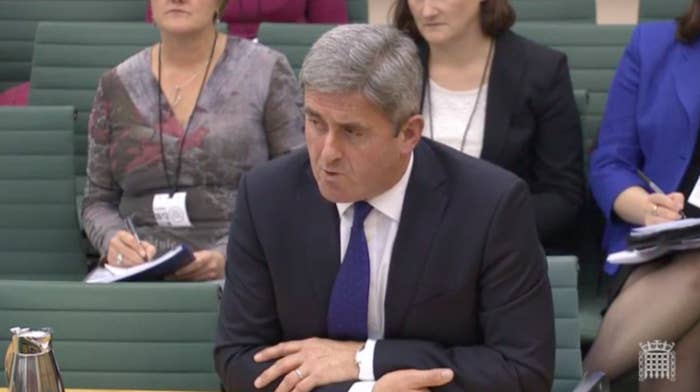
Britain's National Crime Agency appears "more Keystone Cops than FBI", the chair of the Commons home affairs select committee said on Tuesday as MPs questioned the agency's director-general on serious issues with with several high-profile investigations.
Keith Bristow, who is leaving the NCA next month, was told "criminal elements must be rubbing their hands with glee" at the performance of the agency, which was set up to tackle the UK's most serious and organised crime.
"We're supposed to have created a new FBI but the level of incompetence that has been shown in these cases is a serious worry," said Keith Vaz, the committee's Labour chair.
The hearing came after a major investigation by BuzzFeed News revealed the NCA's anti-money-laundering system is considered "not fit for purpose" and that the agency has launched an internal probe into the potential use of unlawful warrants in all of its live investigations.
Bristow acknowledged that prosecutions in two major investigations had collapsed, but denied there was a systemic problem with the NCA's handling of warrant applications. In a letter to the committee Bristow revealed for the first time the scale of the review, which is looking at around 350 operations.
He told the MPs that the review, which will examine more than 2,000 documents, was more than halfway through and had found only one case so far that required what he described as "remedial action".
During an at-times combative performance, Bristow rejected Vaz's Keystone Cops remark. "I don't that's fair…the work our officers do is fantastic," he said. "We let ourselves down in two cases."
He also pushed back against repeated questioning over whether the agency was failing under his leadership. "I reject any suggestion that this agency is not succeeding, but it has more to do," he said.
Bristow acknowledged that there were major problems with the agency's ELMER database, which is used to detect suspicious financial transactions that could be money-laundering or connected to terrorist financing.
He said the problems had been apparent as far back as 2006, when "it was reported that the IT that we use was becoming increasingly not fit for purpose".
"In 2000 we had about 20,000 referrals," Bristow said. "We think this year we're going to have 380,000. The system wasn't built to deal with that volume and it wasn't built to deal with internet banking."
Despite this, he distanced the NCA from the problems, insisting it only hosted the computer system and it was not in his remit to order its replacement.
Bristow hinted at further problems with the organisation's tech infrastructure, which has come under repeated attacks from groups trying to take its website offline.
Vaz asked whether the agency should be seeking the help of hacker groups who target terrorists online: "Do you not think the public would be pleased if the NCA or some other body was able to give us the sort of information that Ghost Security and Anonymous are giving us?"
Bristow also said there needed to be a link between how the police dealt with serious crime "whether it's terrorists, people with a sexual interest in children, drug traffickers, and others" because they use similar techniques.
"Whether they're terrorists or criminals, the way in which they perpetrate their criminality is the same or linked. And the law enforcement response is the same is often the same or linked. [It's about] guns, borders, moving money."
He said he desired to see the agency progress but it needed new employees who could bring in new skills: "We needed hundreds of staff to go."
Vaz concluded that there were still serious concerns about the flagship police agency's performance in the first two years of existence: "The expectations that we had have not been met."

